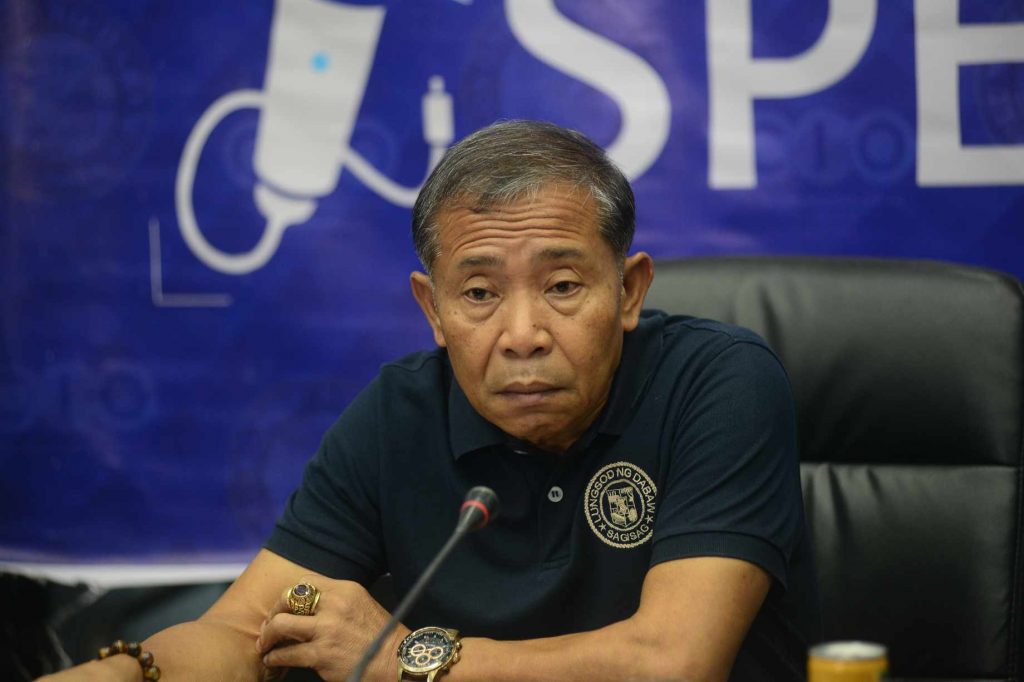BY KATRINA SANCHEZ/ADDU INTERN
THE PUBLIC Safety and Security Office (PSSO) warned Davaoeños and hobbyists about the potential risks of unmanned aerial vehicles (UAVs), which prompted the city’s Drone Regulation Ordinance.
PSSO head Angel Sumagaysay said drones may hit vital installations, inflict harm over densely populated areas, aid syndicates in transporting illegal goods, and obstruct air flights.
“Kung halimbawa, mahutdan siyag baterya, mag-off siya sa taas, dili na kontrolado kung asa siya mubagsak. So, kung populated ang area, basi maigo ang tao sa ubos; or mag-wild ang drone, maigo siya sa mga tower ug mga telcos, or sa atoang mga power [lines] … muresulta siya ug dako na impact na either masunog or maguba,” he said during the Ispeak media forum held at the City Mayor’s Office (CMO).
He added, “Makita nato sa social media kung unsay gamit sa drone labi na sa gyera… lisod siya kontrolon, paluparon ra nimo ni… kabitan siyag haligi, manghulog mo sa target nimo, maka-inflict na siyag damage.”
Moreover, he informed the public of the existing ordinance no. 0419 or the Drone Regulation Ordinance of Davao City, passed in 2020, which is “an ordinance regulating Unmanned Aircraft Vehicles (UAV), Remotely-piloted Aircraft Units (RAU), or any Remotely-Piloted Aircraft System (RPAS) in the city of Davao.”
The ordinance monitors remotely piloted aircraft weighing seven kilograms and below, mandating users to register their aircraft to the PSSO.
“Once ma–rehistro and once na gamiton nila, all you have to do is just coordinate with our office then requesting for ani magpalupag sila, diha na namo sila tagaan ug permit but, of course, with the guidance na dapat mao ning oras ug asa ka magpalupad kasi kami ang muhatag ug flight path nila,” he said.
PSSO is closely working with the Civil Aviation Authority of the Philippines (CAAP), responsible for regulating aircraft weighing over seven kilograms, to coordinate fly paths of the vehicles handled under their respective jurisdictions.
Some identified no-fly zones are the following: electric grids, power plants, sites of water plants, telcos, oil depots, land transportation terminals, and headquarters of uniform units, such as police stations.
Currently, the city’s Drone Regulation Ordinance is not yet covered by the Implementing Rules and Regulations (IRR). Sumagaysay said that it’s still being processed, attributing time as one of the major causes of the delay.
The PSSO will also work closely with the city legal office for cases involving the sanctioning of penalties, considering no penalties are yet to be issued.
Unregistered UAVs will merit a P3,000 fine as the first offense, while the second offense will be a P5,000 fine and confiscation of the drone.

